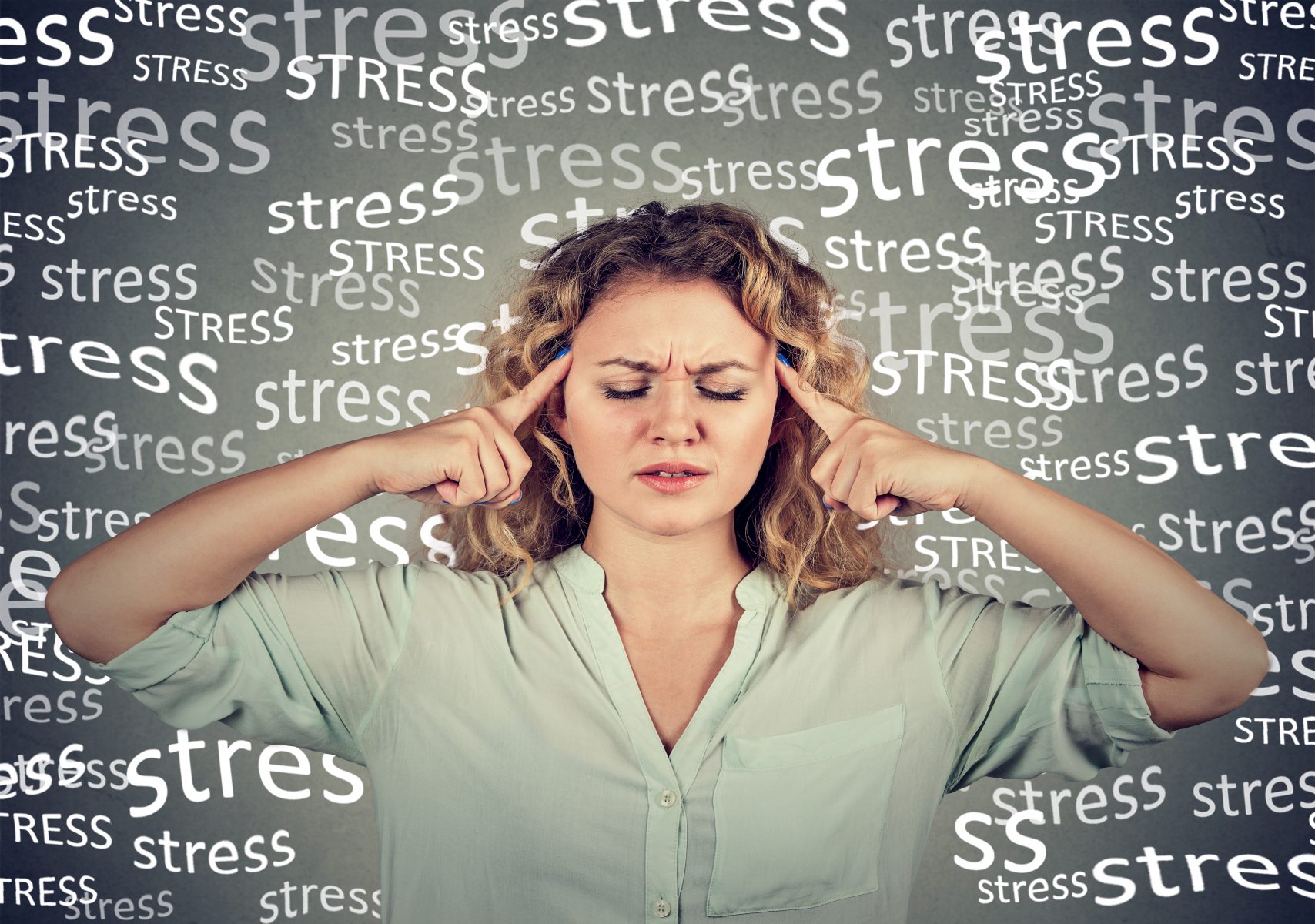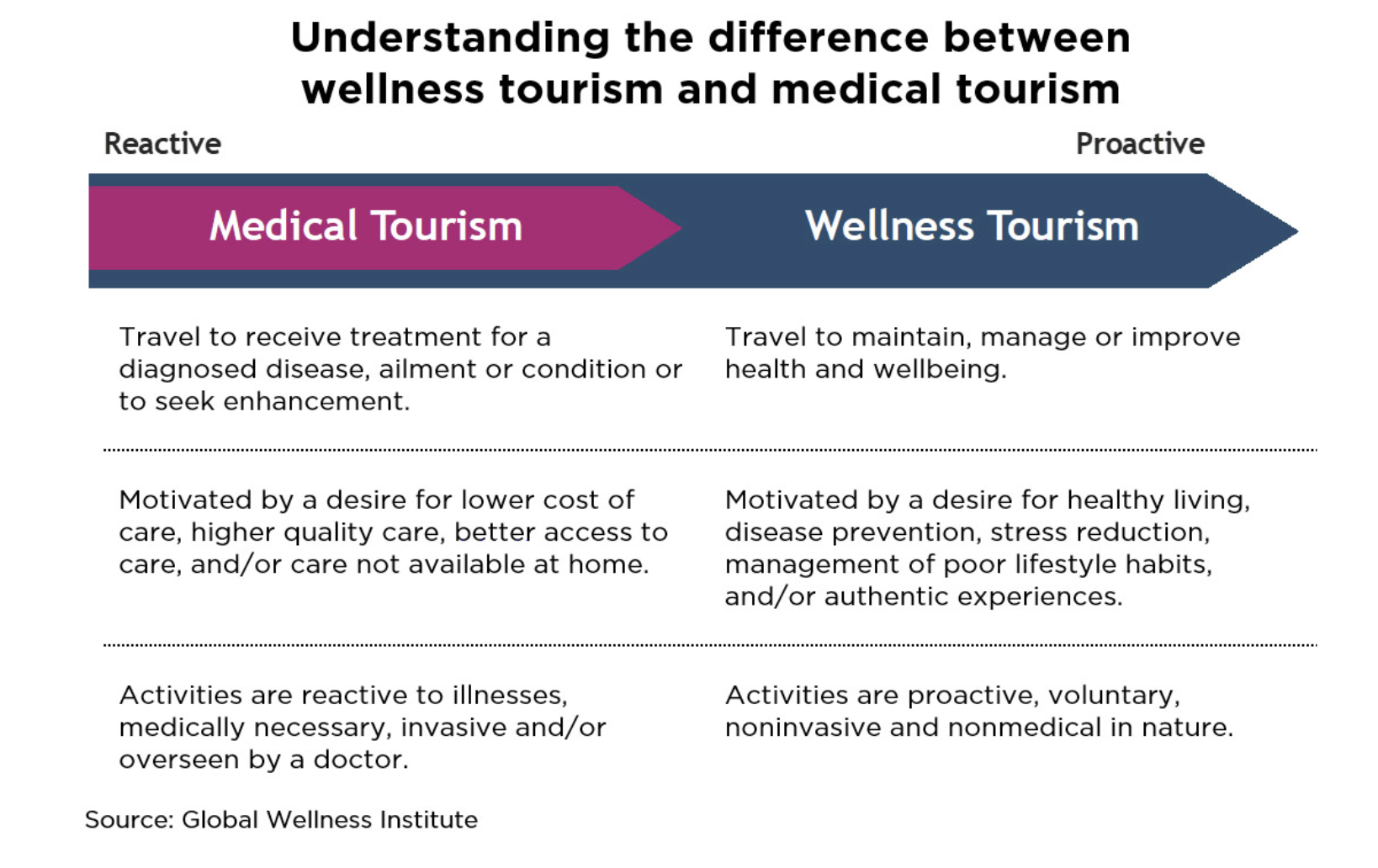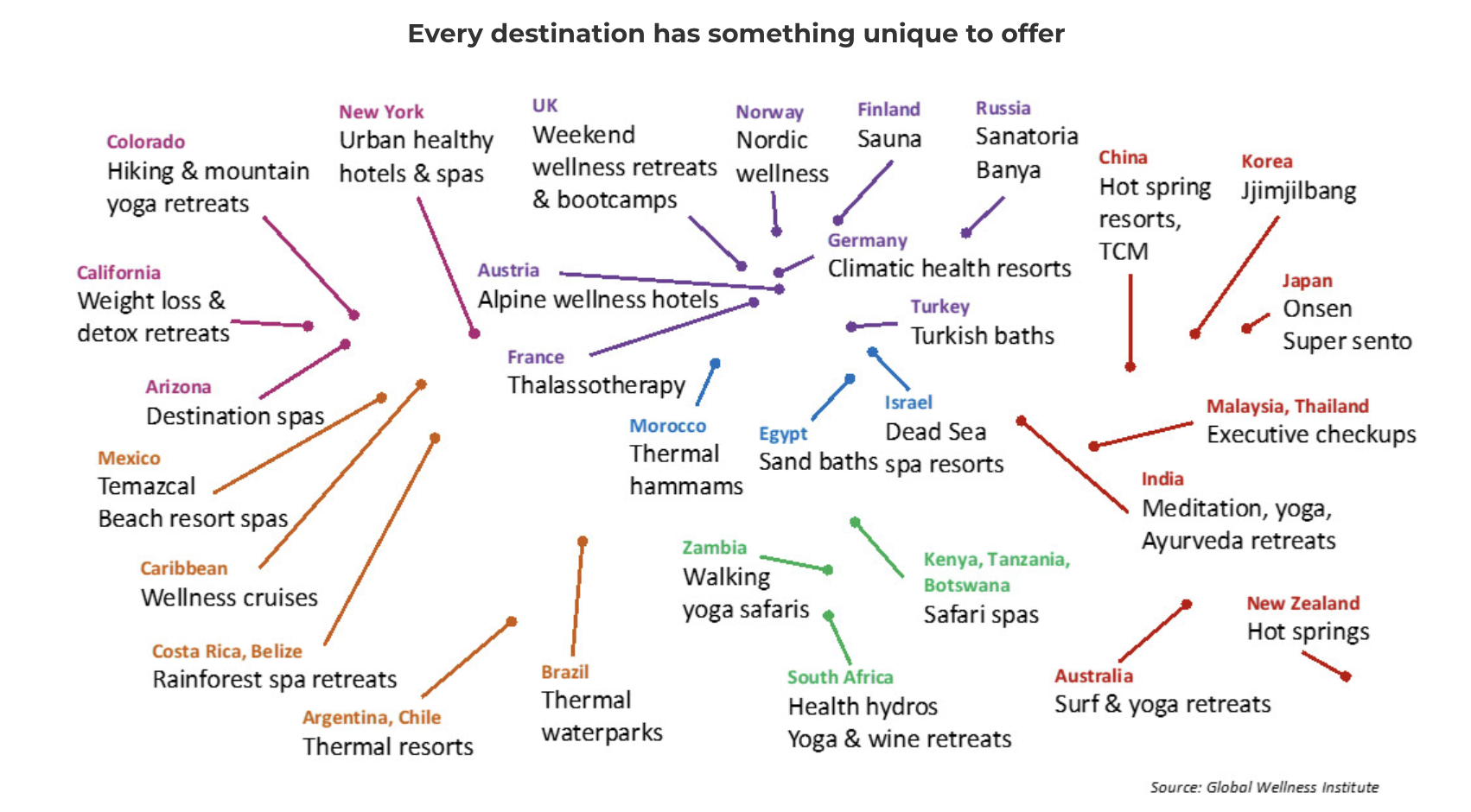How wellness travel can help restore your mind, body and soul
Signing up for credit cards through partner links earns us a commission. Terms apply to the offers listed on this page. Here’s our full advertising policy: How we make money.
INSIDER SECRET: Perks on some of the best airline credit cards can make wellness travel more affordable and comfortable, even for those traveling with a disability or chronic pain. Wellness travel is also a great way to reduce stress before it leads to more serious health issues.
Wellness travel is a way to relax your mind and body while you take a trip, especially now while we’re still bouncing back from the COVID-19 pandemic. The past year and a half have been especially difficult on everyone, so it’s a better time than ever to safely take a trip focused on wellness for both your mind and body. Ahead, find our guide to wellness travel, along with a few tips on how you can use some of the best airline credit cards to make the travel experience more affordable.

Wellness travel and its benefits
Many health organizations, such as the Journal of the American Medical Association and the National Institutes of Health, have published a number of articles that link stress to disease. In fact, according to this article from the American Psychological Association, prolonged stress could alter the body’s natural chemical balance, making it more difficult for the body to fight off certain diseases. So by reducing stress and embracing the benefits of wellness travel, you will be able to improve your chances of staying healthy.
Wellness travel sometimes gets confused with medical tourism. Wellness travel is a “proactive” way to reduce stress or take preventative measures for your health before it leads to more serious health issues, according to the Global Wellness Institute.
Medical tourism, on the other hand, is more “reactive” and describes a method of traveling to receive medical treatment for a diagnosed condition for reasons such as affordability or quality of care, according to the institute.

Types of wellness travelers
Depending on your circumstances and your motivations, you could find yourself in one of two categories of wellness travelers. This is especially important to keep in mind if you’ll be traveling with others so that you can be sure your travel styles align.
Primary wellness travelers are the ones who take a trip primarily for the wellness aspects of it. For instance, they will go to a destination specifically because they offer a gym or other type of wellness activity.
Secondary wellness travelers, on the other hand, are more likely to integrate the wellness portions of a trip as an afterthought. Their trip will not be focused on the wellness activities, although they will participate in some wellness activities on their trip. For instance, they may visit a gym, but that is not their main reason for going on the trip.
Elements of a wellness travel itinerary
Wellness travel can include a number of elements to cope with things like stress, PTSD, depression and more. It can also help if you’re trying to get a better sense of self-identity or a spiritual awakening.
One thing that you’ll want to include with your daily regimen is exercise. Although this can be tricky while you’re traveling, there are a few ways you can stay fit and healthy while on the road.
And for those traveling with a physical condition, here are our guides on traveling with chronic pain and traveling with a disability.
Here are some common examples of elements you can include with your wellness travel itinerary.
- Detox and stop-smoking retreats offer a number of health benefits. They can lower blood pressure and reduce the likelihood of cardiovascular disease and cancer.
- Post-illness recovery programs can be helpful for those suffering from depression, anxiety, stress and other mental health illnesses.
- Unplugging from technology can reduce stress in a number of different ways. By ditching that cell phone and internet connection, you’ll be able to relax without getting hounded from calls and emails from work for instance.
- Improving fitness and health and adrenaline adventures can improve your overall health and help get you in shape. These activities can help lower your blood pressure and lower your risk of cardiovascular disease and heart attack.
- Nature immersion getaways can work very similar to unplugging from technology. It’s a chance to temporarily get away from the stresses of your day-to-day so you can unwind and relax.
- Treating yourself to luxuries you might not normally be inclined to can further help unwind. This helps your body’s “feel-good” hormones and can help further reduce stress.
- Learning a new skill can keep your mind active and sharp.
- Anxiety/PTSD recovery can help with reducing blood pressure which could otherwise result in a number of health issues if left untreated long-term
Wellness travel activities

Depending on where you go, you’ll have plenty of options for wellness activities you can include with your trip that include a number of the wellness elements discussed above.
- Rehabilitation programs
- Physical health
- Post-illness recovery
- Detox
- Anxiety/PTSD recovery
- Hot springs and thermal treatments
- Physical health
- Post-illness recovery
- Treating yourself
- Anxiety/PTSD recovery
- Spa therapy
- Physical health
- Post-illness recovery
- Treating yourself
- Anxiety/PTSD
- Respiratory relief
- Physical health
- Post-illness recovery
- Thalassotherapy
- Physical health
- Post-illness recovery
- Anxiety/PTSD
- Ayurvedic (TCM)
- Physical health
- Post-illness recovery
- Anxiety/PTSD
- Anti-aging clinics
- Physical health
- Post-illness recovery
- Anxiety/PTSD
- Treating yourself
Hot springs for relaxation
Hot springs all over the world provide a comforting place to de-stress and relax. Visiting a place like this during a wellness trip can help you recover from a tough time or just give your body a break.
- Blue Lagoon in Iceland
- The Grand Prismatic Spring in Wyoming
- Banjar Hot Springs in Bali
Yoga for zen
Yoga retreats can provide you with the most stunning scenery for your yoga practice. These places have so many yoga classes offered so you can relax and find your zen.
- Kripalu Center for Yoga & Health in Stockbridge, Massachusetts
- Suryalila Yoga Retreat Centre in Cadiz, Spain
- Bhutan Spirit Sanctuary in Bhutan
Spas for recovery
If you’re recovering from a medical concern or injury or have been through trauma that calls for relaxation and calm, the spa resorts around the world will let you pamper yourself however you please.
- Grand Resort Bad Ragaz in Switzerland
- COMO Shambhala Estate in Bali
- Ananda In The Himalayas in India
Activity-based travel
If you’re the type who wants a highly active trip to give your body and mind a workout at the same time, you might enjoy a trip to something like a national park.
- Yosemite National Park
- Zion National Park
- Olympic National Park
Health and safety travel tips
Ensuring safety and comfort while traveling
If you are a bit more sensitive to the physical stresses of flying, there are steps you can take to make your trip more comfortable.
Booking a seat in business class or first class will give you more room if you’re claustrophobic or need to stretch every now and then. You also get the added benefit of being able to board the plane earlier than other passengers, so you won’t have any anxiety or worries over not being able to find storage space for your carry-on luggage.
Airport lounges can also provide you a number of amenities to make your traveling experience more pleasant. You’ll be able to relax in a quiet area away from the hustle and bustle of the airport terminal, and depending on the lounge you may also have access to complimentary food, drinks, and even a place to shower before your flight.
Expedited security access with Global Entry/TSA PreCheck will help if you’re not able to stand in lines for very long. According to the TSA’s website, in June 2019 92% of TSA PreCheck passengers waited less than five minutes.
As someone who has anxiety and a slight fear of cramped spaces, flying in business class has been a game-changer. TSA PreCheck has also gone a long way in reducing my anxiety whenever I’m worried about being late for my flight.
Confirming accessibility
Many airlines and airports have procedures to assist those with physical disabilities. These services include handicap parking close to the airport, wheelchair assistance and curbside pickup.
Those services will get you to the security lines, but you can make the trip even easier on yourself if you have access to perks such as TSA PreCheck, airport lounge access, free checked bags and priority boarding.
You can read more about flying with a disability in our guide.
Insuring your trip
Getting injured or sick overseas when you’re in a foreign place can be very stressful, so you’ll want to make sure you have adequate medical coverage overseas. Contrary to popular belief, many health insurance policies do not offer the same coverage abroad as they do within the United States.
Having the proper health insurance will ensure access to medical treatment if you happen to need it. You can also look into medical evacuation coverage, which can come in extremely handy depending on the severity of your illness or injury.
Reducing costs
If budget is at the top of your mind and you’re trying to figure out how to keep costs down, consider where you’ll want to travel. Certain countries have lower costs of living and consequently lower prices for elements that are on the itinerary of your wellness trip. Western European countries, other locations here in the United States, and some South Pacific Islands generally have higher costs. You can typically save money by looking for similar treatments in countries like South America, India, Asia, and Eastern Europe.
You can also save money by redeeming miles and points for a spot in business class, first class, or a 5-star hotel or resort (Miraval resorts are a great choice to consider). And if you’re considering some perks mentioned above such as TSA PreCheck or airport lounge access, for instance, keep in mind that many top airline credit cards offer them as a perk of being a card member. Your credit cards can also help you find deals and discounts on wellness activities or can be used to pay for food or rideshares. By using your travel credit card for these expenses, you’re not only keeping your finances tidy while traveling, but you’re earning points for your next wellness vacation.
Bottom line
If you are experiencing stress, depression, looking for a better sense of your own identity via a spiritual awakening, or are recovering from an illness or traumatic life event, wellness travel can be a significant healing factor.
Wellness travel is a preventative method to reduce stress and prevent more serious issues like cardiovascular disease or high blood pressure. It can also be viewed as a de-stressing method or detoxifying outlet for whatever you’re going through in life.
Even those recovering from medical treatment or those traveling with chronic pain or a physical disability can benefit from wellness travel, as the flying process can be made more comfortable, convenient and affordable thanks to perks like TSA PreCheck, airport lounge access and priority boarding – which are available on many of the best airline credit cards. Your airline credit cards can also help you find discounted hotels, activities and food — all things that will help bring your stress level down and allow you to travel more comfortably.
Do you have any experience with wellness travel? We’d love to hear about it in the comments below. And subscribe to our newsletter to stay up-to-date on the latest news on the many benefits of travel.
Editorial Note: We're the Million Mile Secrets team. And we're proud of our content, opinions and analysis, and of our reader's comments. These haven’t been reviewed, approved or endorsed by any of the airlines, hotels, or credit card issuers which we often write about. And that’s just how we like it! :)






Join the Discussion!